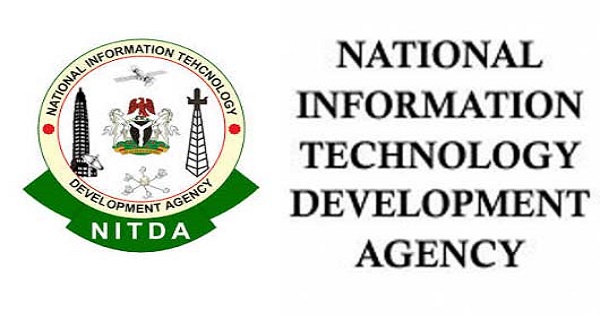E-Business
FG Orders Public Institutions to Digitize Databases in 60 Days

National Information Technology Development Agency (NITDA) has given a 60-day deadline for public institutions holding or processing personal data to securely digitize all databases.

Mrs Hadiza Umar, head of NITDA’s Corporate Affairs and External Relations. NITDA, said that this will be done in adherence to the highest level of information security, ensuring confidentiality, integrity and resilience of all databases within such institutions’ control.
Umar, in statement on the agency’s website, said that the directive is part of the Guideline for Management of Personal Data by Public Institutions in Nigeria 2020. Part of the statement said:
“All Public Institutions holding or processing personal data are required to securely digitize all personal databases within 60 days from the issuance of the Guidelines.
“Similarly, all such public institutions are required to maintain the highest level of information security to guarantee confidentiality, integrity, availability and resilience of all databases within their control.”
The guidelines are to be considered supplementary regulations to the Nigeria Data Protection Regulation (NDPR), 2019, which is still considered valid and binding on all Nigerian individuals and institutions.
Controlling such sensitive data is a position of trust that requires adherence to the highest ethical and professional standards, in line with global practices and secure technological innovation, as the data is of public importance.
The new guidelines “also mandates the use of secure technology and automated processes for personal data by Public Institutions, in line with the requirements of the National Digital Economy Policy and Strategy,” and in consonance with emerging global data regulatory models.
There will sometimes be a need for collaborations between the public and the private sectors in handling interventions for the benefits of citizens, and this could necessitate the use or release of such data.
The new NITDA guidelines recognise this and provides a framework that will ensure the privacy of citizens’ data without hindering the process.
“The COVID-19 pandemic, for example, has brought up the need for more personal data use to limit the spread of the virus. While we recognise the existence of constitutional limitations on privacy rights in the interest of public health and safety, yet such limitations must be based on defined frameworks,” the statement read.
NITDA urged compliance from all concerned institutions, stressing that “the Agency shall not hesitate to invoke the punitive sanctions provided in the NITDA Act 2007 and NDPR in the event of breach or abuse of personal data of Nigerians.”
NITDA, the apex regulatory body for Information Technology in Nigeria, issued Nigeria’s first comprehensive framework for the protection of personal data, the NDPR 2019, to provide a framework for the protection and processing of personal data of Nigerians and residents.
The agency functions under the Federal Ministry of Communication and Digital Economy and is charged with the task of monitoring the use of electronic data interchange and other forms of electronic communication transactions in Nigeria.
E-Business
FG to E-Visa System in May 1 to Boost Border Security, Streamline Travel

Federal government has announced plans to roll out an electronic visa (e-visa) system by May 1, 2025, in a major step towards modernising Nigeria’s immigration processes.

The initiative, a collaborative effort between the Ministry of Aviation and Aerospace Development and the Ministry of Interior, is designed to tighten border security while simplifying travel procedures for visitors.
Speaking at a press conference in Abuja on the implementation of immigration protocols under the Migration Visa Policy (MVP) 2025, Olubunmi Tunji-Ojo, minister of Interior, outlined the far-reaching benefits of the new system.
He explained that the e-visa platform, alongside the automation of landing and exit card processes, would strengthen background checks and deter unauthorised entry into the country.
“With the e-visa, applications will be processed online, and a centralised visa approval centre is already operational at the Immigration headquarters,” Tunji-Ojo revealed.
“Officers have been trained and equipped with integrated solutions connected to global criminal databases such as Interpol, enabling thorough background checks for all incoming travellers.”
The new procedure mandates that passengers must complete an online landing and exit card before boarding their flight.
This information will be cross-verified by airlines in collaboration with the Nigerian Civil Aviation Authority (NCAA).
According to the minister, this integration ensures that anyone attempting to enter or exit Nigeria without proper clearance will be flagged immediately.
“The responsibility of coordinating and verifying this process rests with the NCAA. They are fully committed, as we all are, to safeguarding our nation’s borders and upholding our sovereignty,” he added.
The collaboration between the ministries has already yielded tangible results through initiatives like the EPIC Solution, an advanced passenger information system that has led to the interception of individuals flagged by Interpol at Nigerian borders.
Furthermore, e-gates have been installed at key terminals in Lagos and Abuja airports to support automated, efficient, and secure passenger clearance.
Tunji-Ojo announced that in the coming weeks, the NCAA and the Nigeria Immigration Service (NIS) will jointly establish a dedicated team to finalise the implementation framework, regulatory guidelines, and protocols for airlines.
“This is not a task for one agency alone. It is an inter-ministerial effort requiring seamless cooperation,” he emphasised.
Mr. Festus Keyamo, SAN, minister of Aviation, described the partnership as a model of effective governmental collaboration. He highlighted that both the e-visa and the automated landing and exit card systems will be free of charge, ensuring accessibility while reinforcing security.
Keyamo provided further details on the operational flow of the new system, explaining that travellers will be required to complete an entry card online before their arrival.
The digital system will store their details, including visa type, entry date, and permitted duration of stay. Upon departure, passengers must present their exit cards at the airline’s check-in desk, where the NCAA’s protocol will be applied.
“As you prepare to leave Nigeria, the first checkpoint will be the airline’s boarding desk,” Keyamo explained.
“If you’re a foreign traveller, they will ask for your exit card. Without it, you won’t be issued a boarding pass.”
The process is designed to trigger automatic verification: once the traveller enters their passport number, the system retrieves their entry data and duration of stay.
Should any irregularities arise—such as overstaying a visa – the airline, following NCAA protocol, will refuse to board the passenger and refer them to immigration authorities.
“When you approach immigration, officers will have complete visibility of your travel history and status. Depending on the nature of the violation, they may issue fines, cancel visas, or impose travel bans of up to 10 years,” Keyamo stated.
Both ministers underscored that the overarching goal is to enhance Nigeria’s national security, curb illegal immigration, and create a seamless, digital travel experience.
With this modernised approach, the country aims to align with global best practices while maintaining its sovereignty.
As preparations advance toward the official launch date, authorities are optimistic that the e-visa system will not only improve efficiency but also bolster Nigeria’s reputation as a secure and welcoming destination for legitimate travellers.
E-Business
Security Operatives Arrest Suspects behind Illegal NIN Collection in Exchange for Money

National Identity Management Commission (NIMC), has announced that operatives of the Department of State Security and Nigeria Police Force have arrested suspects involved in the illegal collection of National Identity Numbers (NIN), in Anambra State.

This comes as the commission also warned Nigerians against sharing their National Identity Number with unauthorised persons in exchange for money.
Dr. Kayode Adegoke, spokesman for NIMC issuedthis warning in a statement on Wednesday.
This follows reports of some Anambra residents submitting their NIN to unauthorised individuals in exchange for money.
Reacting, NIMC said the activities contravene NIMC Act No. 23, 2007, the Data Protection Act, and the Cyber Crime Act.
The commission said individuals involved in the act have been arrested by operatives of the Department of State Security and the Nigeria Police Force.
“Upon receiving the information on the activities of the unscrupulous individuals, NIMC, in conjunction with the Department of State Services (DSS) and the Nigeria Police Force (NPF), swiftly arrested the culprits behind the illegal collection of the NIN.
“They are currently being interrogated and will be made to face the full wrath of the law. The commission, therefore, advises Anambra State residents and Nigerians to avoid submitting their NINs to unauthorised individuals, organisations, or platforms, as the Federal Government and NIMC have not authorised this. Anyone caught will be sanctioned appropriately.
“At no time should NIN holders give out their NINs for monetary compensation. This is against the laws of the Federation. Anyone caught will be dealt with appropriately.
“The Commission had earlier issued a statement warning Nigerians against sharing their NIN or data with anyone or on any fictitious sites. The NIN can only be used by the holders to access government or private sector services, and it must be verified.
“The Commission has taken necessary measures to kerb the activities of these unscrupulous individuals,” NIMC stated.
E-Business
FG to Make Citizen Registration Mandatory under any Circumstance

Nigeria is in the process of making registration for national digital ID compulsory for every citizen under any circumstance.

Engr. Abisoye Coker-Odusote, DG, NIMC
This aspect is contained in a draft text which is currently in the National Assembly for examination.
Only recently, the bill passed second reading in the senate, meaning it has to now be also vetted by the House of Representatives before it can be assented to by the President if he has no objections.
Already, the bill has passed second reading in the Senate after a report submitted by the Committee on National Identity Card and Population was reviewed and adopted.
Senator Victor Umeh, chairman of the committee, said that the bill is a repeal and re-enactment of the National Identity Management Commission (NIMC) Act.
The objective of the draft text, the lawmaker said, is to streamline digital ID registration in Nigeria by putting in place a harmonized system that is cost-effective and meets global standards for digital ID management.
There have been talks by the Nigerian government, including a recommendation of the Senate Committee on ICT and Cyber Crimes, for all government databases to be harmonized as a way of revolutionizing identity verification.
According to the bill, as reported, a centralized identity repository will be created, as well as a new commission that will have the specific responsibility to enroll citizens and issue national digital ID cards.
It is not totally clear if this commission will fully take the ID issuance responsibility currently under the NIMC.
These proposed changes envisaging compulsory ID enrollment in Nigeria align with broader efforts of the government to strengthen the country’s digital ID legal framework, a process that started sometime last year and announced by NIMC, and is part of conditions to unlock funds for the World Bank-sponsored digital ID program ongoing in the country.
Last year, a proposed amendment to the NIMC Act 2007 also called for compulsory digital ID for foreign nationals living in Nigeria.

 Broadcasting3 days ago
Broadcasting3 days agoMTN Battles Netflix, Showmax with New Streaming Platform

 News3 days ago
News3 days agoHow KongaFM 103.7 Helped Cure My Insomnia Challenge

 News3 days ago
News3 days agoFG to Invest in Cutting-edge Broadcast Technology

 Broadcasting3 days ago
Broadcasting3 days agoFG Begin Technical Upgrade of Government-Owned Media

 Broadcasting3 days ago
Broadcasting3 days agoProf Osinbajo Seeks Stronger IP Protection in Nigeria, Africa

 General News3 days ago
General News3 days agoMart Networks Brings Comprehensive Cybersecurity Solutions from Infopercept to Africa

 General News3 days ago
General News3 days agoOneData Revolutionizes Caleb University Campus Connectivity, Empowering Students for the Digital Age

 General News3 days ago
General News3 days agoEvans Woherem’s Book, “Building A New Africa” Charts Bold Vision For Africa’s Future



























